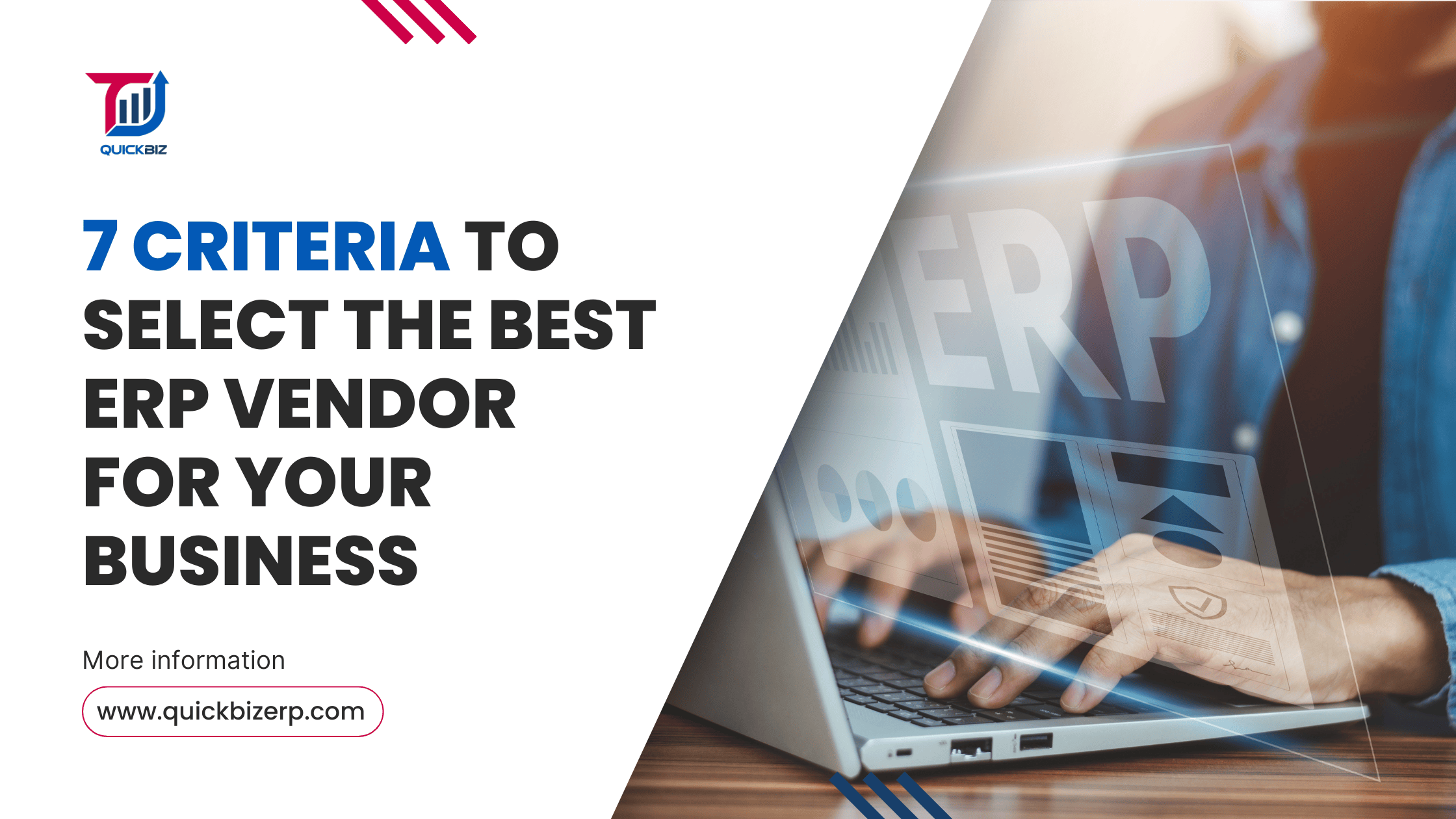7 Criteria to Select the Best ERP Vendor for Your Business

Introduction
Selecting the right ERP vendor is critical to the success of your business operations. A robust ERP system streamlines processes, improves efficiency, and supports growth. However, choosing the wrong vendor can lead to inefficiencies, unnecessary costs, and operational disruptions. This guide provides seven essential criteria to help you make a well-informed decision that aligns with your business goals and ensures a successful ERP implementation.
What Makes a Great ERP Vendor?
A great ERP vendor offers more than just software. They act as a strategic partner, ensuring the ERP solution meets your business needs and supports scalability. Key qualities include:
- Comprehensive knowledge of your industry
- Proven track record with reliable customer support
- Ability to adapt solutions for your business's unique challenges
The 7 Key Criteria for Selecting an ERP Vendor
1. Industry Expertise
An ERP vendor with industry-specific experience understands your unique challenges and operational needs. Their expertise ensures the software has features tailored to your sector, whether it's manufacturing, retail, healthcare, or finance.
Key Tip: Look for vendors with case studies, testimonials, or clients in your industry.
2. Scalability and Flexibility
As your business grows, so do your operational demands. A scalable ERP system accommodates this growth without the need for constant upgrades. Additionally, flexibility ensures the software can adapt to new business models or regulatory changes.
Key Tip: Ask the vendor about future-proofing strategies and modular add-ons.
3. Cost and ROI Considerations
ERP systems are a significant investment, so understanding the total cost is crucial. Beyond upfront costs, consider ongoing expenses like maintenance, upgrades, and training. Evaluate the potential return on investment (ROI) through increased productivity and operational savings.
Key Tip: Request a detailed cost breakdown and calculate ROI over 3–5 years. For more on maximizing ERP ROI, refer to this article.
4. Integration Capabilities
An ERP should seamlessly integrate with your existing tools and systems, such as CRM, HR, and supply chain management software. Lack of integration can lead to data silos and inefficiencies.
Key Tip: Ensure the vendor offers APIs or built-in compatibility with your current systems.
5. Customer Support and Training
Post-implementation support is vital for ERP success. A reliable vendor provides accessible support, regular updates, and training sessions to ensure your team fully leverages the software.
Key Tip: Check for 24/7 support availability, user guides, and training programs.
6. Vendor Reputation and Reviews
The vendor's reputation in the market speaks volumes about their reliability and performance. Research online reviews, ratings, and client testimonials to gauge customer satisfaction.
Key Tip: Look for vendors with awards or industry recognitions that highlight their credibility. For more insights on vendor reputation, read Top 10 Cloud ERP Solutions for SMEs to Drive Efficiency.
7. Customization Options
Every business has unique needs, and a one-size-fits-all approach may not work. Customization ensures the ERP system aligns with your workflows, reporting requirements, and business goals.
Key Tip: Ask the vendor about customization options and any associated costs or timelines. For more on customization in ERP systems, see our latest blog.
When to Reevaluate Your ERP Vendor
Even after selecting the best vendor, periodic reevaluation is essential. Signs you may need a change include:
- Limited scalability hindering growth
- Poor customer support affecting operations
- Outdated technology that fails to meet modern demands
Conclusion
Choosing the right ERP vendor is a strategic decision that impacts your business's efficiency and growth. By focusing on these seven criteria, you can confidently select a vendor that aligns with your operational needs and long-term goals. Remember, the right ERP vendor is not just a provider but a partner in your business success.
Encouragement: Evaluate your current processes, engage your team, and prioritize solutions that enhance your operations today and in the future.

